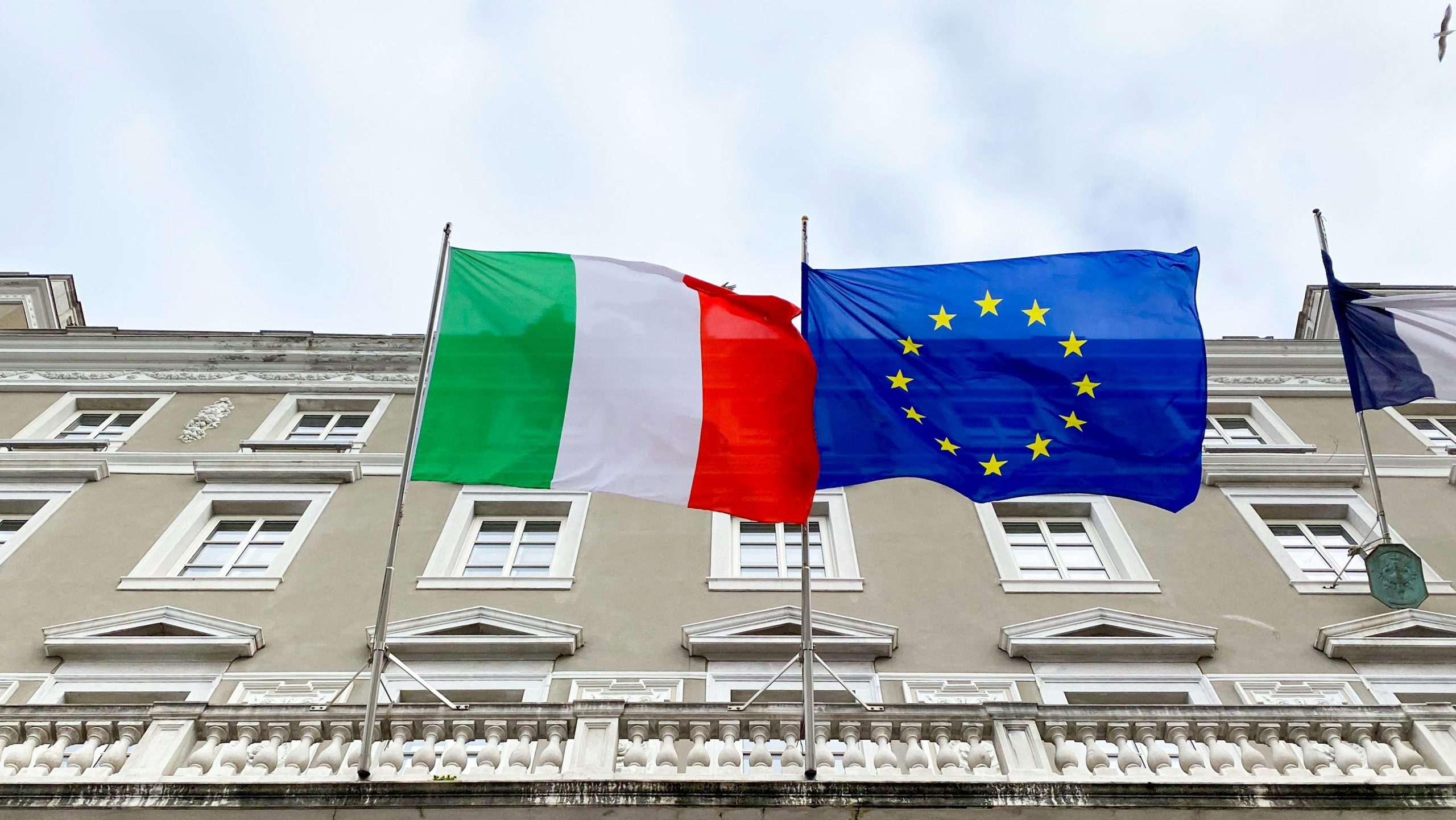Italy is a popular market for companies, but many are still unsure about entering. The main reason? Doing business in Italy is very different from the rest of the EU. Internationalisation within the EU.
Italy is a big economy in Europe, so it’s a good place for companies to grow and enter new markets. That explains why the number of Foreign Direct Investments has doubled from 2020 to 2022!
Is Italy already on your list? Let’s focus on the advantages of expanding into the Italian market.
We listed 6 pros for you that might help you to stop doubting. Like the Italians would say: Godere!
-
Strategically located EU member
Italy, as an EU member, can freely move goods with other EU countries because of the customs union. Customs duty applies to goods imported from outside the EU. At 24%, the corporation tax rate in Italy is lower than in most of the other G20 countries.
Italy’s location in the Mediterranean region is strategic for expanding into neighboring countries. Italy is a key connection point for central, southern, and eastern Europe. It is located at the center of the European Core Network Corridors (TEN-T) that pass through the country. In addition, doing business in Italy can create links to the Middle East and North Africa.
-
Welcoming government policies and ESG commitment
Italy’s open economy is very welcoming to investors. The country made big changes to earn trust from investors, like creating a special committee in the Ministry of Economic Development.
El Italian Trade Agency provides help with starting a business in Italy, including information, support, and assistance with incentives and contracts.
The government offers numerous tax credits and incentives to attract FDI. Some examples include tax breaks for hiring women and young workers. There are also deductions for energy-efficient practices.
Additionally, there are lower taxes on income from certain intangible assets. The government gives tax credits for research and development. The government provides tax credits for research and development. They offer different percentages based on the type of investment.
For private investments, they give 25%. For projects in universities or research institutions, they give 50%. For investments in machinery and capital goods, they give 15%.
Investors promote Italy for its commitment to ESG issues, incentives for technological innovation, and human capital training. In particular, more than 50% of investors believe that Italy has a higher share of renewables in the energy mix than most other European countries.
-
Foreign investments are on the rise
The EY Europe Attractiveness Survey 2023 reveals that Italy attracted 243 foreign investment projects in 2022. This marks a 17% increase from the 207 projects in 2021. The number of projects more than doubled from 2020 to 2022, going from 114 to 243.
This significant increase demonstrates that the response offered by institutions and businesses to the crisis triggered by the pandemic, and subsequently by the conflict in Ukraine, has outlined some trends linked to the review of supply chains, logistics and distribution, and the energy transition. These projects have further positive effects on the ongoing process of modernization of the country.
-
Attractive local market with less competition
Italy’s market is the fourth-largest economy and the third-largest in the Eurozone by GDP. It is also the eighth-largest economy globally. A population of over 60 million people and a per capita GDP of almost 33.000 euro, make the market fertile ground for businesses.
Italian households have low debt compared to other European countries, with debt at 83% of disposable income. This is much lower than in Europe, so households have more money to buy things.
Italy is a major consumer market in Europe. 68% of investments focus on the local market, while 32% are driven by local skills and knowledge. Some sectors of Italy’s economy have less competition than other European countries, where bigger companies dominate. This attracts many foreign investors to invest in Italy, seeing it as a good opportunity for growth.
-
Robust manufacturing base
Italy stands as one of Europe’s leading manufacturing nations, ranking second after Germany. The hallmark of Italian-made products remains their esteemed quality and innovative design. Investors can work with experts in different fields like machinery, fashion, food, cars, and medicine. Moreover, companies can tap into an extensive network of intermediate suppliers spanning industrial machinery, metals, chemicals, plastics, paper, ceramics, textiles, marine industries, and more.
In Italy, most investments are in the North-West regions, where there are many industrial areas. They distribute about 57% of resources there, focusing on attractive industrial districts. textiles, leather goods, design, automotive).
Central Italy (16%) and the North-East (12%) follow this. The growth in investments in the South (from 10% to 15% of the total) was positive.
-
Italy is an amazing place
We might forget the obvious: Italy is an amazing place to visit, travel, work, and live. Italians put a high priority on having a good balance between work and life.
People usually have longer lunch breaks and more time to hang out with co-workers or family. No wonder Italy is above the European average in promoting a flexible and inclusive corporate culture. This emphasis on balance can help make work more fulfilling and satisfying.
Discussing lunch… Italian food is famous all over the world, and in Italy, you can eat real Italian food. These business lunches hit differently 😉
Italy is home to many famous landmarks, museums, and galleries that are known all over the world. Doing business in Italy allows you to experience and appreciate cultural treasures, which can help you grow personally.
If you live in Northern Europe, you can go to Italy to enjoy the sunny Mediterranean weather. Italy has sunny weather for most of the year. This can help you escape the grey skies of Northern Europe.

